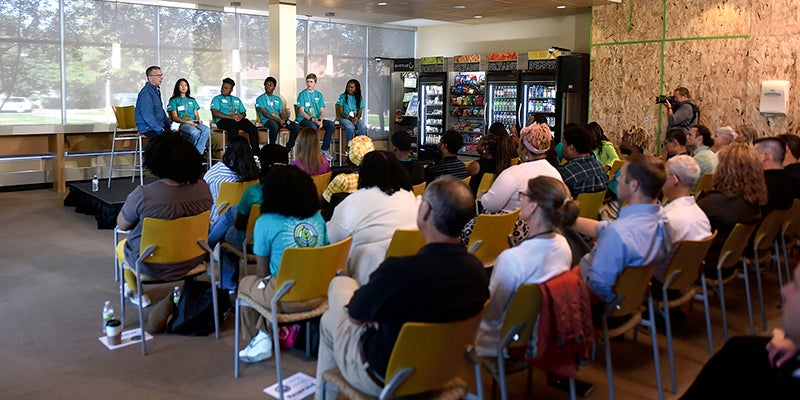Time running out for P-9’ers
Published 11:10 am Wednesday, December 12, 2012

Members of the United Support Group, known as the P-9'ers, play cards and enjoy conversation Tuesday morning at their northeast Austin location. The group, after striking for 26 years, may call it quits soon. -- Eric Johnson/photodesk@austindailyherald.com
After 27-year strike, group says it may call it quits because of lack of funds
Click here for a timeline of the strike
A piece of Austin’s history still comes together, as former meat workers who once called themselves “P-9ers” meet more than two decades after publicly leaving their jobs.

Austin Police begin arresting strikers during the big Hormel Strike in the mid-1980s. -- Herald file photo
Yet the Local 9 workers who once organized a strike against Hormel Foods Corp. and sparked a nationwide discussion in 1985 and 1986 on the merits of organized labor may soon have no place to meet.
A core group of former P-9 workers get together every morning inside a small building near the corner of Fourth Avenue and 10th Street Northeast. Hidden behind an alley just south of AB Taxi & Shuttle and marked by a simple sign reading, “United Support Group,” the P-9ers use the location as more of a clubhouse today than the gathering place to discuss local and international labor issues.
Yet the long-standing group is running out of money. Unless they receive donations, the Local 9 will have to give up the building for rent in February.
“We’re looking for a benefactor,” said Bob, who didn’t want to give his last name. “Put that in the paper.”
The United Support Group, later known as the Local P-9, formed in 1982 when Hormel announced plans to cut wages by 23 percent, from $10.69 to $8.25 per hour. Workers were unable to strike as a result of a union contract formed in 1978, when labor representatives gave Hormel concessions after company officials considered moving meatpacking operations out of Austin.
Workers decided to strike in August of 1985, rejecting a labor contract offer by Hormel with a 1,261-96 vote. The strike lasted for more than a year, putting a national spotlight on Austin and drawing the National Guard, the Rev. Jesse Jackson and thousands of people to town at various times. The strike officially lifted on Sept. 13, 1986, when the United Food and Commerce Workers union, which had taken over the Local 9 through legal arbitration, accepted a Hormel labor contract which promised to raise worker wages to $10.70 by 1988. The strike is remembered by many for its violent demonstrations and labor struggles between workers who remained on strike and those who crossed the picket line. Even today, some Austin families won’t speak to their relatives and former friends will avoid each other because of the strike, and many longtime residents say the strike permanently changed the spirit of Austin.
The group, which once had more than 1,000 members, has about five or six core members, though sometimes eight to 10 people will show up during the day. Time and death slowly cut P-9 membership over the years: The P-9ers went to the funeral of one of their members on Monday, Dec.10.
What’s more, the group has largely made peace with the past. They’ll still tell stories about the strike to curious people, and even journalists on occasion, but they primarily gather to play cards, talk about the issues of the day, and swap stories they’ve heard.
Even their memorabilia is gone. The P-9ers removed the collection of newspaper clippings, photos, posters and other mementos of the Hormel strike from the United Support Group Building walls last week, in preparation for when they move out in February.

The Rev. Jesse Jackson visits Austin as a mediator. His visit caps a week where about 5,000 people came to Austin in support of the local P-9. -- Herald file photo
“We’re just running out of money for the rent,” said Maynard Hodnefield. “We’re just kind of letting the money run out and then we’ll close her down.”
The P-9ers moved into the building in 2002, after leaving another space. Mayor Tom Stiehm said the group is welcome to put together a proposal to take to the Austin City Council, but he didn’t know whether the council could help.
“Obviously, something like that would be controversial,” Stiehm said.
While Hormel didn’t comment specifically on the P-9’ers, a spokesperson released a statement today saying, “Hormel Foods appreciates and respects the efforts of all its employees, both past and present.”
The former Local 9 members have moved on from the strike, like many Austin residents, but they are still affected by its memory. Two members refused to give their full names out because they believe previous journalists never published or broadcast the full story behind the strike and took some P-9 comments out of context. One member refused to give his name at all; He remembered the phone calls and harassment he received not only from the strike but from two years ago, when the town recognized the strike’s 25th anniversary. He didn’t want phone calls or comments to his family because of another news article.
Only two members gave their full names; Bruce Bates, who called himself a junior member, and Ken Dalager.
“We may have moved on and forgiven, but we haven’t forgotten,” he said.
Residents willing to donate can find Local 9 members at the United Support Group building weekdays from about 9 to 11 a.m.






